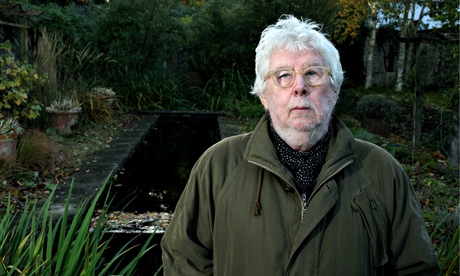
Alan is a shepherd from the north of England, who has brought his flock south to Wiltshire. His black-faced sheep thrive in the ritual downland landscape, their numbers steadily increasing as he counts them in the traditional northern way – "Yan, tan, tethera, methera, pimp". But his neighbour Caleb Raven, whose his own flock of white-faced sheep is sickly, resents his prosperity. He lusts after Alan's wife Hannah and enlists the help of the mysterious Bad'Un to abduct the shepherd and their twin boys and imprison them in the "great hill" for seven years, until Hannah secures their release through the power of the counting scheme.
Yan Tan Tethera, Harrison Birtwistle's "mechnical pastoral", is music theatre about the magic of landscapes, and the potency of numbers and spells. Originally commissioned by the BBC for television, with a perfectly conceived text by Tony Harrison, it's an allegory about other things as well: northerners finding success down south; locals mistrusting incomers, especially when they come with black faces. Most of all, it's one of Birtwistle's most immediately attractive scores, which until its performance as part of the Barbican's series celebrating the composer's 80th birthday, hadn't been seen or even heard since its first production in 1986.
Birtwistle imagined the piece like an automaton, with the two shepherds coming forward to sing like figures on an elaborate clock. That's hard to achieve in a concert hall, but at least John Lloyd Davies's staging was less distracting than the one he created for Gawain earlier in the festival. The masked chorus – the sheep – were behind the orchestra (the Britten Sinfonia), with the two shepherds (Roderick Williams as Alan, and Omar Ebrahim, who sang Alan in 1986, as Caleb) at the front of the stage on either side.
It certainly allowed all the beauties of Birtwistle's glistening, mysterious score, with its constantly shifting "music of the hill" underpinning everything, to be appreciated in all its detail under Baldur Brönnimann. This was found particularly in Hannah's aria, a lament turning to fierce incantation as she reclaims Alan and her boys, which Claire Booth made the climax of the evening.

